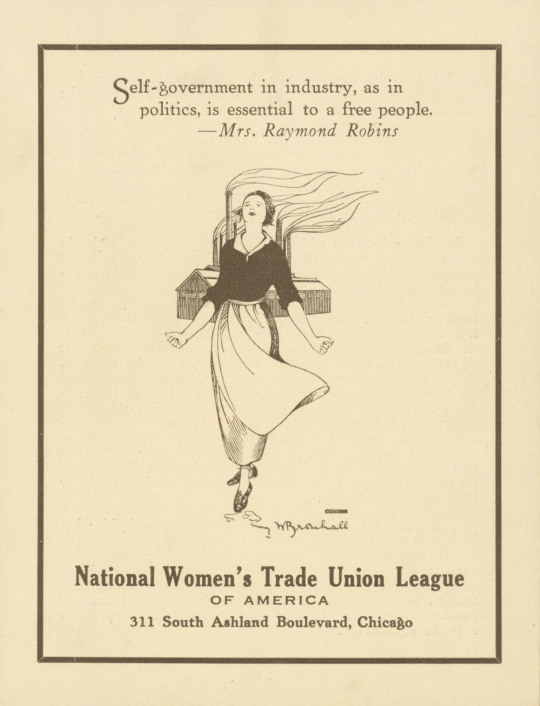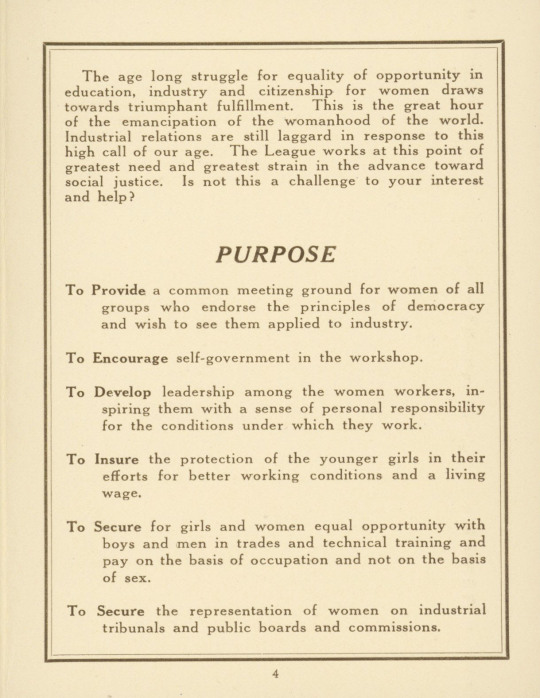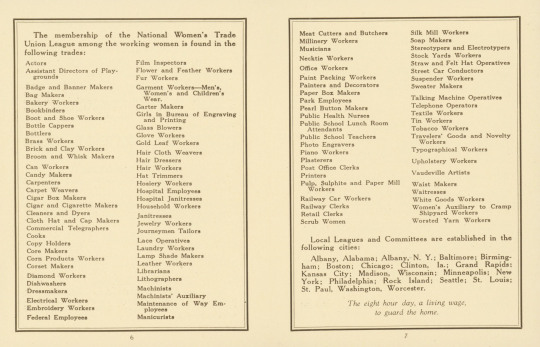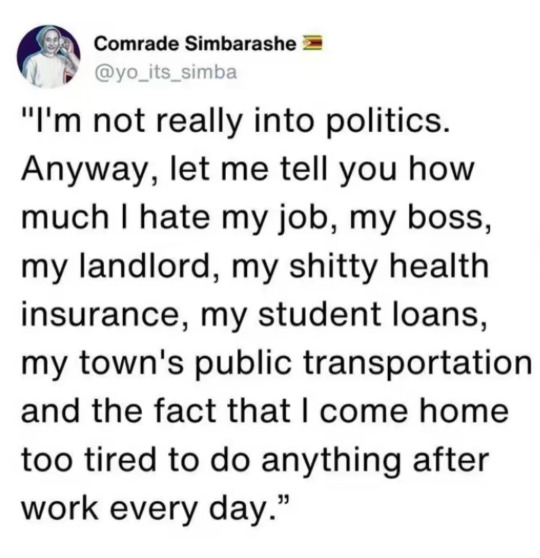#labor movement
Explore tagged Tumblr posts
Text
July 8, 2024 - Thousands of Samsung workers have declared an indefinite strike in South Korea, demanding better pay and benefits. [video]
#south korea#strike#samsung#tech workers#unions#workers#working class#industrial action#2024#video#labor movement#raised fist#red flag#solidarity#banner#hwaseong
9K notes
·
View notes
Video
tumblr
join a union
the power of collection action
#tiktok#Adam Conover#collective action#union workers#labor unions#unions#protest#labor vs capital#labor rights#capital vs labor#labor movements#labor movement#workers rights#workers vs capital#workers#writers strike
37K notes
·
View notes
Text
UPS TEAMSTERS-UNION WON !!!!!!!!!!!
From the article:
[(WASHINGTON) – Today, the Teamsters reached the most historic tentative agreement for workers in the history of UPS, protecting and rewarding more than 340,000 UPS Teamsters nationwide. The overwhelmingly lucrative contract raises wages for all workers, creates more full-time jobs, and includes dozens of workplace protections and improvements. The UPS Teamsters National Negotiating Committee unanimously endorsed the five-year tentative agreement.
“Rank-and-file UPS Teamsters sacrificed everything to get this country through a pandemic and enabled UPS to reap record-setting profits. Teamster labor moves America. The union went into this fight committed to winning for our members. We demanded the best contract in the history of UPS, and we got it,” said Teamsters General President Sean M. O’Brien. ... This contract sets a new standard in the labor movement and raises the bar for all workers.”
“UPS came dangerously close to putting itself on strike, but we kept firm on our demands. In my more than 40 years in Louisville representing members at Worldport — the largest UPS hub in the country — I have never seen a national contract that levels the playing field for workers so dramatically as this one....” said Teamsters General Secretary-Treasurer Fred Zuckerman. “We stayed focused on our members and fought like hell to get everything that full-time and part-time UPS Teamsters deserve.”
“Rank-and-file members served on the committee for the first time, ... “Our hard work has paid off — from those members and leaders negotiating for more at the table to my sisters and brothers building a credible strike threat around the country. Our union was organized and we were relentless. We’ve hit every goal that UPS Teamster members wanted and asked for with this agreement. It’s a ‘yes’ vote for the most historic contract we’ve ever had.”
Highlights of the tentative 2023-2028 UPS Teamsters National Master Agreement include:
Historic wage increases. Existing full- and part-time UPS Teamsters will get $2.75 more per hour in 2023, and $7.50 more per hour over the length of the contract.
Existing part-timers will be raised up to no less than $21 per hour immediately, and part-time seniority workers earning more under a market rate adjustment would still receive all new general wage increases.
Wage increases for full-timers will keep UPS Teamsters the highest paid delivery drivers in the nation, improving their average top rate to $49 per hour.
New part-time hires at UPS would start at $21 per hour and advance to $23 per hour.
All UPS Teamster drivers classified as 22.4s would be reclassified immediately to Regular Package Car Drivers and placed into seniority, ending the unfair two-tier wage system at UPS.
Safety and health protections, including vehicle air conditioning and cargo ventilation. UPS will equip in-cab A/C in all larger delivery vehicles, sprinter vans, and package cars purchased after Jan. 1, 2024. All cars get two fans and air induction vents in the cargo compartments.
All UPS Teamsters would receive Martin Luther King Day as a full holiday for the first time.
No more forced overtime on Teamster drivers’ days off. Drivers would keep one of two workweek schedules and could not be forced into overtime on scheduled off-days.
UPS Teamster part-timers will have priority to perform all seasonal support work using their own vehicles with a locked-in eight-hour guarantee. For the first time, seasonal work will be contained to five weeks only from November-December.
On July 31, representatives ... will meet to review and recommend the tentative agreement. All UPS rank-and-file members will receive a list of improvements in the contract. ... Member voting begins August 3 and concludes August 22.
The UPS Teamsters National Master Agreement is the single largest private-sector collective bargaining agreement in North America.]
Check the article for the full list; but ho ho holy shit.
This is huge. It shows the collective bargaining WORKS. The Teamsters sent a message to UPS and this win will send a message to Corporate America that unions can WIN for rank-and-file workers!!!
2K notes
·
View notes
Text
We under value and take for granted artists as a society. I’m talking all artists…writers, actors, musicians, dancers, designers, painters, sculptors…the list is endless.
The commonality is that they all have either spent their time honing their skills through practice, lessons, education or all of the above. Artists dedicate their time and often their lives to their craft.
We are failing our artists. Symphony orchestras are failing across the US. Writers and actors are on strike. People involved in the fine arts are turning to independent sales. We need to shift our expectations.
We need creatives as a part of our society. What we don’t need is the expectation that artists should work for free or for a paltry income. Simply because an artist enjoys performing or creating doesn’t mean they should have to do so for nothing.
We also no longer live in an era where it is standard that the extremely wealthy build museums or libraries or fund performing arts groups. We live in an era of amassing extreme wealth for the minority of the population.
I get that profitability is important, but at what cost? Are we ok that artists can’t afford health insurance? Are we ok that artists are leaving our communities for other opportunities? Are we ok that companies are ready to use AI over humans for creative processes and performance?
I’m not ready for any of this. We will lose a significant part of our humanity by eliminating and discouraging the ability to thrive for artists. Change can be hard but change is what is needed.
We are experiencing the beginning of a labor revolution and it will not stop with our writers, actors, UPS drivers or Starbucks baristas. The peasants are fed up and the nobility needs to pay attention.
Support your local artists. Support independent artists. Support the striking unions and organizations. We can all play a part in creating a long lasting effective change.
#WGAstrong #SAGAFTRAstrong #Unionstrong #BeLoud
#sag aftra strong#wga strike#support wga#support sag aftra#labor unions#support unions#labor organizing#labor movement#artistsupport#support the arts#union strong#labor strike
1K notes
·
View notes
Text
183 notes
·
View notes
Note
would any unions rival each other? Or guilds.
Without question.
Guilds vigorously enforced their legal monopolies and tried their best to subvert the legal monopolies of other guilds. There are actually records of guilds attempting to sue and shut down production of a weaver who dyed their fabric a shade of color that was *too* close to a dyers' guild legal monopoly among other disputes. Fun fact: One of the candidates I wrote for the headcanon challenge with RaceForTheIronThrone actually had to settle a dispute between two dyers guild over whether one was transgressing on their "Arryn blue" monopoly.
Unions frequently competed with each other too, often competing for top talent and the right to represent particular groups of workers. Jurisdictional disputes, subverting election campaigns, these were standard practices.
Thanks for the question, Anon.
SomethingLikeALawyer, Hand of the King
25 notes
·
View notes
Text
More Perfect Union | CNBC's Jim Cramer raises alarm over United Auto Workers' President Shawn Fain: "I find him frightening." He thinks Fain and the UAW are going too far. "The notion that shareholders are fat cats... that's class warfare. And it's very shocking to hear class warfare."

#politics#the left#capitalism#video#more perfect union#workers rights#labor rights#labor movement#progressive
284 notes
·
View notes
Note
Which federal laws and policies would you get rid of or modify in order to help the American labor movement.
I was looking through the labor law tag on my blog and your ask reminded me I haven't actually written a comprehensive post about this on Tumblr. (Indeed, you'd have to go back to my old, old policy blog from 2009...it's been a while.)
One silver lining of the Sisyphean struggle to restore American labor law that's been going on since the 1970s is that the labor movement and their allies in Congress, academia, think tanks, and progressive media have been thinking through this very issue of "what reforms would make a real difference" for a long time. I'm not going to say it's a solved question, but the research literature is pretty robust.

For the purposes of this post, I'm going to focus on the three most recent reform packages: the Employee Free Choice Act that was the main vehicle during the Obama years, Bernie Sanders' Workplace Democracy Act (which was introduced repeatedly between 1992 and 2018), and the Richard L. Trumka Protecting the Right to Organize Act (PRO Act) that is the current proposal of the Democratic legislative caucuses. There's going to be quite a bit of overlap between these proposals, because it's very much an iterative process where allies in the same movement are trading ideas with one another and trying to stay abreast of new developments, but I'll try to tease out some of the similarities and differences.
EFCA
While EFCA contained a number of provisions that sought to close various loopholes in U.S labor law, the three main provisions largely target the flaws that have made it extremely difficult to win a union through the National Labor Relations Act process devised in 1935 that has turned into a Saw-style gauntlet thanks to the professionalization of union-busting and the Federalist Society's strategy of death-by-a-thousand-cuts:
"Card check." Probably the most common pattern of union-busting in the workplace today is a war of attrition by management waged by an industry of specialized law firms. Generally what happens is that the union files for election with a super-majority of ~70% workers having signed union cards, then management delays the vote as long as possible to give their hired "union-avoidance" firm to systematically intimidate, surveil, propagandize, and divide workers, up to and including illegally firing pro-union workers pour encouragez les autres. Over several months, what happens is that the initial 70% of pro-union support starts to erode as workers decide it's just too dangerous to stick their necks out, until the vote happens and the union loses either by a squeaker or a landslide.
Card check short-circuits this process by just saying that if the union files with a majority of cards, you skip the election and the union is recognized. And for all the pearl-clutching by the right, this is actually how labor law works in many democratic countries, because the idea of a fair election that lets management participate is an oxymoron.
Arbitrated first contract. In the event that enough workers keep the faith and actually vote for a union, management's next move is to draw out collective bargaining for a year or more. After a year, the original vote is no longer considered binding and employers can push for a "decertification" vote, which they usually win because workers either give up hope or change jobs. So this provision says that if the two sides can't reach an agreement on a first contract within 120 days, a Federal arbitrator will just impose one, so that at least for two years there will be a union contract no matter what management wants.
Strengthening enforcement. As I said above, one of the problems with existing labor law is that there are basically no penalties for management knowingly breaking the law; companies literally just budget in a line-item and do it anyway. This provision would allow unions to file an injunction against employers for unfair labor practices or ULPs (at present, injunctions are only required for violations done by unions), and would add triple back pay for illegal firings and fines of $20,000 for each ULP. This would make union-busting much more expensive, because companies routinely rack up hundreds and hundreds of them during a campaign.
Workplace Democracy Act
Sanders' proposal includes the main proposals from EFCA, and adds a bunch of additional reforms, like mis-classifying workers as independent contractors, banning captive audience meetings, making "joint employers" liable for labor law violations by franchisees, legalizing secondary boycotts, and requiring employers to report to the NLRB on all anti-union expenditures during a campaign and barring anyone convicted of an unfair labor practice from being hired for anti-union campaigns and making "union-avoidance" consultants liable for fines for ULPs (which would kill the "union-avoidance" industry, because they commit ULPs for a living).
PRO Act
The PRO Act is very much an updating of the previous efforts we've talked about. It bans captive audience meetings, allows for secondary strikes and boycotts, massively increases fines and allows for compensatory damages, ends mis-classification, speeds up the election process, etc.
It also contains a couple new and ambitious proposals:
it allows unions to sue management in court instead of having to complain to the NLRB, which opens management up to a very expensive legal proceeding and discovery.
it bans "right-to-work" as established by the Taft-Hartley Act.
it requires that any worker who's fired for pro-union activity be immediately reinstated while their unfair labor practice process or civil lawsuit is going through the process. This would be enormous just on its own, because it changes the entire veto structure of illegal firing. As it stands, employers fire people and maybe maybe have to pay some back wages in a couple years when the worker has found another job and is unlikely to come back. This would reverse the balance of power, such that the worker is immediately back and other workers can see that they can speak up without getting fired, which makes illegal firings a giant waste of time and money for management.
In terms of stuff that's not on this list that I would add, I would say that an enormous difference could be made by simply making it illegal for management to lock-out their workers or hire scabs. You do that, and unions can win almost every strike.
77 notes
·
View notes
Text
New article: Is Dropshipping Indie Selling? (No.)
There has been a recent influx of social media accounts made to advertise The Wonders Of Dropshipping on any post mentioning ecommerce. Many of these seem to be bots, but a real person must be behind them -- so our very own Alex R. of @handmadehazefromtheheart decided to write up an article responding to the idea that these ecommerce "guru" types overlap with our member base of online indie sellers.
Excerpt:
To a consumer, the process of buying from big name versus indie online storefronts is the same: see the pictures, read the description, click “purchase,” and wait for a package. That standard makes it pretty easy for another kind of online seller to present you with a product on an original-looking webpage, accept your money in exchange for the promise of shipment — and then turn around and give (some of) that money to an actual supplier that sends you your purchase. [...] Ultimately, the Indie Sellers Guild seeks to be an online extension of the labor movement. In capitalism, things are often divided into a working class and an owning class, and we’re here for the working class. [...] [D]ropshipping is a way to claw at the benefits of being part of the owning class: gaining profit for nothing more than inserting yourself into a transaction that doesn’t need you to operate fairly. We don’t condone that, and we don’t represent that.
View it in full here.
For some insightful thoughts on print-on-demand selling -- something that we don't all agree falls under "dropshipping" but does overlap -- you'll find a link inside to another article by Valerie of Artisans Cooperative.
#dropshipping#ecommerce#scams#shop small#content farms#workers rights#small business#indie selling#dropshipping scams#blog post#artisans cooperative#print on demand#labor movement#online shopping
20 notes
·
View notes
Text
Happy Labor Day!


In recognition of Labor Day and the continued fight for workers’ rights, we’re highlighting a 1921 National Women’s Trade Union League pamphlet from our social-justice-based Fromkin Memorial Collection.
The National Women’s Trade Union League (WTUL) was established in 1903 to represent women's rights within the American labor movement and remained active until 1950. The organization was notable for its diverse population of working women and upper-class reformers, including Eleanor Roosevelt, who fought side by side to organize women workers into unions, provide educational opportunities to women and girls, and solidify protective workplace and social legislation. The WTUL is credited with playing a critical role in supporting the 1909 New York Uprising of the 20,000, which remains the largest strike by American women in history. Within their working-class ideology, WTUL also advocated for the eight-hour workday and supported women’s suffrage.
This promotional pamphlet spotlights three of the WTUL’s achievements including opening a School for Women Leaders in the Labor Movement in 1911, initiating a federal investigation into the conditions of woman and child wage-earners in 1907 which lead to the establishment of the Department of Labor Women’s Bureau in 1920, and presenting its Reconstruction Program at the 1919 international Peace Conference.
While we enjoy a long Labor Day weekend (or perhaps time and a half pay for union members), may we also reflect on the WTUL’s spirit and accomplishments and all of those who continue to fight for social justice.

View posts from Labor Days past.
-Jenna, Special Collections Graduate Intern
#labor day#national women's trade union league#uprising of the 20000#social justice#labor movement#women's rights#fromkin collection#unions#women#women's work#women's labor unions#labor unions
150 notes
·
View notes
Text


Today is Larry Itliong Day! Itliong was a Filipino-American labor organizer who is remembered as one of the “fathers of the West Coast labor movement.”
Itliong is best known for co-founding the United Farm Workers Union with fellow activist Cesar Chavez in 1967. He was also key in launching the 1965–1966 grape strike and boycott in California, which led to increased workers’ pay and protections.
We honor Larry Itliong and all who have tirelessly fought for the rights of farm workers, immigrants, and Asian Americans.
#larry itliong#larry itliong day#labor rights#labor movement#united farm workers union#grape strike#grape boycott#farm workers#farm worker rights#immigrants#immigrant rights#asian americans#asian american rights
19 notes
·
View notes
Text
Why won't the studios just make a deal with the writers and actors already? We know they can afford it.
#tiktok#sag aftra#WGA#writers strike#adam conover#strike#labor vs capital#capital vs labor#workers rights#workers vs capital#labor movement
13K notes
·
View notes
Text

You aren’t above it all by pretending not to be upset about it, don’t pmo.
#american healthcare#american health system#student loans#rent control#landlords are parasites#labor movement#labor rights#climate change#government#economics
8 notes
·
View notes
Text
Larry Itliong Day!
Today we celebrate Larry Itliong, labor organizer and civil rights activist. Oct. 25 was designated Larry Itliong Day by Gov. Jerry Brown in 2015. Learn more about Larry at the California Museum's online exhibit at https://californiamuseum.org/california-hall-of-fame/exhibitions/virtual-exhibitions/larry-itliong/
8 notes
·
View notes
Text
The SEIU (Service Employees International Union), representing nearly 2 million workers in the US and Canada, has called for a ceasefire.
"As a union family strongly committed to justice and democracy, we believe all people across the globe deserve to live safely and free of fear, with dignity and respect for their human rights, as well as access to food, water, shelter, medicine and other necessities."
162 notes
·
View notes
Text

#facts#fact#earth#society#community#reality#labor movement#wage slavery#slave wages#slavery#slaves#slave#poverty#homeless#ausgov#politas#auspol#tasgov#taspol#australia#fuck neoliberals#neoliberal capitalism#anthony albanese#albanese government#antiwork#anti slavery#eat the rich#eat the fucking rich#anti capitalism#late stage capitalism
19 notes
·
View notes